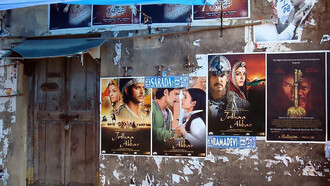Comedians must strike a balance between their artistic expression and changing social norms as cancel culture changes the way people talk about matters. Is this change in culture encouraging responsibility or inhibiting free expression and creativity?
The phrase "cancel culture" has gained popularity in recent years to describe the process of removing support for people or organizations because of their offensive actions or viewpoints. This phenomenon has had a substantial impact on a number of industries, most notably comedy, where it is difficult to strike a balance between humour and offense. The emergence of cancel culture has led to a reconsideration of the limits of comic expression.
Comedy has long been a forum for questioning social norms and bringing up sensitive topics. Comedians frequently serve as social critics, utilizing comedy to elicit discussion and stir debate. But the rise of cancel culture has created a more sensitive atmosphere, which has made funny content more closely examined. Because of this atmosphere, comedians have occasionally been the target of criticism for content that is considered offensive, which has caused public protest and negative effects on their careers.
The controversy surrounding Dave Chappelle's 2021 Netflix special "The Closer" is a noteworthy example. Critics accused Chappelle of transphobia after his remarks on the transgender community caused a stir. GLAAD and other organizations denounced the program, claiming that Chappelle's name has come to be associated with making fun of transgender people. Calls for the show to be taken down from Netflix and internal demonstrations inside the organization were among the backlashes. Chappelle defended his work in spite of the criticism, emphasizing the conflict between social norms and artistic expression.
For comedians negotiating cancel culture, the stakes have increased in the internet age. A single joke may quickly become a viral scandal on social media sites like Twitter and Instagram, with millions of people debating whether it is appropriate. In addition to speeding up criticism, this hyperconnectedness exposes comedians to a worldwide audience with wildly disparate cultural tastes. The art of comedy is made even more complex by the fact that what is seen as amusing satire in one nation may be viewed as extremely offensive in another.
Beyond specific instances, cancel culture has an impact on the comedy industry as a whole. Some comedians have engaged in self-censorship, avoiding subjects that can be interpreted as provocative, out of fear of negative reactions. The standardization of humorous material and the suppression of originality are issues raised by this trend. According to an article from Australia Unwrapped, the pressure to fit in with society's expectations might result in a lack of diversity of viewpoints, which could lessen the richness of the art form (Hero, 2024).
The inconsistent nature of cancel culture is another feature. Some popular individuals survive the storm and carry on with their careers with little effect, while others experience long-lasting consequences. This discrepancy frequently depends on elements such as the comedian's devoted following, the platform's position on controversy, and the intensity of the backlash. Some have drifted into oblivion following similar occurrences, while others, like Ricky Gervais, have capitalized on the controversy and built a career around unapologetic humor. Because of this uncertainty, many comedians question whether it would be preferable to stick to their artistic principles or adjust to shifting social mores.
On the other hand, supporters of cancel culture argue that it encourages comedians to think about how their work affects society and fosters accountability. According to this viewpoint, the changing norms promote more inclusive and considerate comedy. Renowned actress and comedian Julia Louis-Dreyfus sees political correctness as a positive development, suggesting that greater sensitivity can improve the art of drama and comedy (Russell, 2024).
A larger social discussion concerning free expression and the boundary of artistic freedom is reflected in the controversy around cancel culture's influence on comedy. Some see it as a threat to artistic expression, while others see it as an essential tool for social advancement. Finding a balance that permits comedians to tackle difficult and thought-provoking subjects without causing harm is the difficult part.
Fundamentally, the controversy surrounding comedy and cancel culture is a reflection of a larger social struggle with historical injustices and power structures. Once dominated by unquestioned viewpoints, comedy is currently changing as a result of audience demands for more accountability. According to a Pew Research Center poll, 38% of American citizens view cancel culture as a form of punishment for free speech, while 58% of them think it holds people accountable. This gap highlights the conflict between development and preservation: while changing standards promote intelligent comedy, critics fear that over-sanitizing comedy could deprive it of its ability to question the very systems that cancel culture aims to reform.
To sum up, cancel culture has unquestionably impacted the comedy scene, inspiring reflection and discussion. While recognizing the power of words and their influence on a wide range of audiences, the comedy industry must negotiate these shifts in society's standards in order to preserve its position as a place for free expression. In a society that is becoming more conscious, comedy's future will be shaped by the continuous discussion between artistic freedom and social duty.















